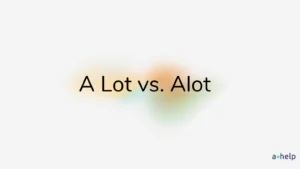The English language is full of homophones, words that sound the same but have different meanings and spellings (although, not with a spelling checker). Two such words that often cause confusion are “principal” and “principle.” “Principle” is always a noun that represents a fundamental truth, belief, or rule. On the other hand, “principal” can be an adjective referring to something that is ‘top-priority’, the head of a school, or a sum of money. Despite their similar pronunciation, these words have very different meanings and uses in sentences.

✅ AI Essay Writer ✅ AI Detector ✅ Plagchecker ✅ Paraphraser
✅ Summarizer ✅ Citation Generator
Defining “Principal”
The word “principal” can be used both as an adjective and a noun, each with a different meaning.
As an adjective, “principal” means “main” or “most important.” It is used to describe something that holds primary significance in a particular context. For example:
- “The principal reason for my decision is the cost.”
- “She played the principal role in the school play.”
As a noun, “principal” has two common meanings. Firstly, it can refer to the head of a school or educational institution. For example:
- “The principal announced a new policy for the school.”
- “She met with the principal to discuss her child’s progress.”
Secondly, in a financial context, “principal” refers to the original sum of money invested or loaned, before interest. For example:
- “The principal amount of the loan was $10,000.”
- “He paid off the principal of his mortgage, leaving only the interest.”
Knowing the context in which “principal” is used will help you determine whether it is acting as an adjective or a noun.

Defining “Principle”
The word “principle” is always used as a noun and has a distinct meaning from “principal.” It refers to a fundamental truth, rule, or belief that serves as the foundation for a system of behavior or for a chain of arguments.
For example:
- “Honesty is a key principle in building trust.”
- “The principle of gravity explains why objects fall towards the Earth.”
- “She adheres to the principle of treating others with respect.”
Principles are often used as guidelines or standards by which individuals or organizations make decisions and evaluate actions. They are the concepts that form the basis of moral, ethical, or legal systems.
For example:
- “The company operates on the principle of sustainability.”
- “He refused to compromise his principles for personal gain.”

There you go! Now you know the difference between the two words and a bit more about homophones in general.
FAQ
Follow us on Reddit for more insights and updates.





Comments (0)
Welcome to A*Help comments!
We’re all about debate and discussion at A*Help.
We value the diverse opinions of users, so you may find points of view that you don’t agree with. And that’s cool. However, there are certain things we’re not OK with: attempts to manipulate our data in any way, for example, or the posting of discriminative, offensive, hateful, or disparaging material.